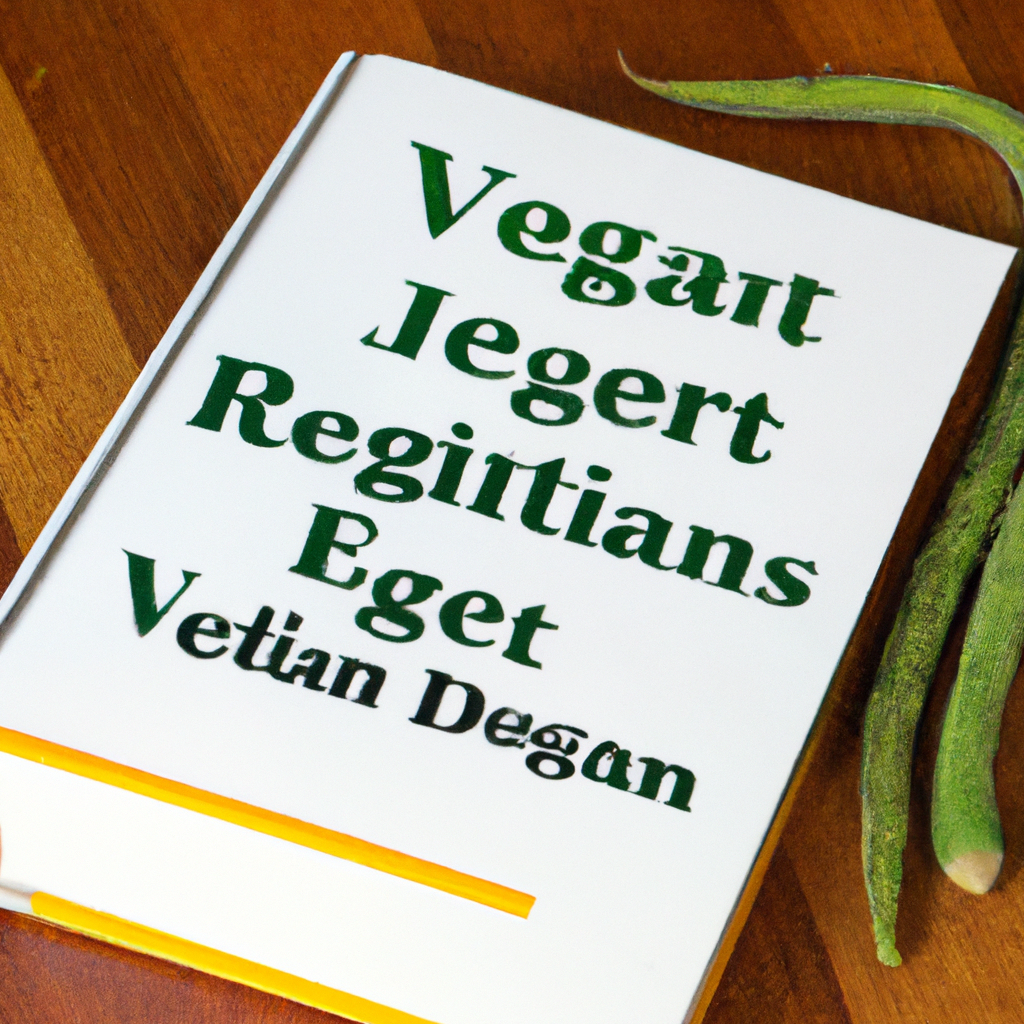In a world where our love for our four-legged friends knows no bounds, we continually strive to give them the best possible care. As dedicated pet owners, we have become more conscious of the impact our choices make on our furry companions, prompting an age-old question: should our pets adopt a vegetarian or vegan diet? In this thought-provoking and informative article, we will explore the considerations and concerns surrounding vegetarianism and veganism for our beloved pets. Delve into a world where compassion meets nutrition, as we navigate the intricacies of providing a meat-free diet for our furry friends. Whether you’re an advocate for compassionate eating or curious about the potential health benefits, join us on this exploration as we uncover the truths, myths, and everything in between about vegetarian and vegan diets for pets. Buckle up, and get ready to explore a whole new realm of dietary possibilities for our four-legged companions!
1. “Pawsitively Plant-Based: Rethinking Diets for our Furry Friends”
Why Consider a Plant-Based Diet for your Pet?
As pet owners, we are always looking to provide the best nutrition for our furry friends. Rethinking traditional diets and considering plant-based options for our pets can have numerous benefits.
1. Healthier and Happier Pets: A well-balanced plant-based diet can provide all the necessary nutrients, proteins, and vitamins that your pet needs to thrive. It can improve their coat condition, boost their energy levels, and strengthen their immune system.
2. Environmental Sustainability: By opting for a plant-based diet for your pet, you are contributing to the reduction of carbon footprint associated with meat production. Plant-based diets have a lower environmental impact and help conserve our natural resources.
3. Addressing Allergies and Sensitivities: Some pets suffer from allergies or sensitivities to certain ingredients commonly found in traditional pet diets. Switching to a plant-based diet can help alleviate these issues and provide relief from skin problems, itching, and digestive sensitivities.
2. “Deliciously Divergent: Exploring Vegetarian and Vegan Diets for Pets”
Are vegetarian and vegan diets the new trend in pet nutrition? As more people adopt these lifestyles, the idea of feeding their furry companions a plant-based diet is becoming increasingly popular. However, the question remains: can dogs and cats thrive on a meat-free diet?
The truth is, while dogs are omnivores, cats are obligate carnivores. This means that cats require vital nutrients found only in animal products. Feeding them a strictly vegetarian or vegan diet can lead to nutritional deficiencies and health issues. On the other hand, dogs have the ability to digest a wider range of food sources, making vegetarian or vegan diets a viable option.
Before adopting a vegetarian or vegan diet for your pet, consult with a veterinarian who specializes in pet nutrition. They can help determine the best approach based on your pet’s individual needs. It’s essential to ensure that all required nutrients are provided in the diet, such as protein, vitamins, and minerals.
Some vegetarian and vegan pet foods available on the market are formulated to meet all the necessary nutritional requirements of dogs. These foods often include high-quality plant-based proteins, such as soy or lentils, and are fortified with essential nutrients, like taurine and vitamin B12, which are commonly found in meat. Additionally, some brands offer vegetarian alternatives for cats which contain synthetic versions of these crucial nutrients.
It’s important to note that transitioning your pet to a vegetarian or vegan diet should be done gradually to minimize digestive upset. Monitor your pet’s weight, energy levels, and overall well-being during the transition period. If any concerning changes occur, consult with your veterinarian immediately.
3. “Food for Thought: Navigating the Concerns Surrounding Vegetarian and Vegan Diets for our Beloved Companions”
As the popularity of vegetarian and vegan lifestyles continues to rise, many of us find ourselves questioning if these diets are safe and suitable for our furry friends. While it’s clear that plant-based eating has numerous benefits for human health and the environment, the decision to extend these lifestyle choices to our pets is a complex one. Here, we explore the concerns surrounding vegetarian and vegan diets for our beloved animal companions.
1. Nutritional Adequacy:
One of the major apprehensions surrounding vegetarian and vegan diets for pets is the concern of meeting their nutritional needs adequately. While dogs and cats are known as carnivores, it’s important to remember that they are also opportunistic scavengers, meaning their digestive systems can handle a wide range of foods. However, it’s crucial to ensure that any vegetarian or vegan diet for pets includes essential nutrients such as proteins, vitamins, minerals, and healthy fats to maintain their overall health.
2. Protein Sources:
Proteins are the building blocks of life, and it’s crucial for vegetarian and vegan pet owners to ensure their companions receive sufficient quantities of this vital nutrient. While plant-based proteins can be incorporated into their diets, it’s important to choose complete protein sources that provide all the essential amino acids required for their body to function optimally. Legumes, quinoa, and tofu are some excellent examples of plant-based protein sources, but it’s always recommended to consult a veterinarian to formulate a well-balanced meal plan.
3. Special Considerations:
When considering a vegetarian or vegan diet for your pet, it’s important to take into account any pre-existing health conditions they may have. Some breeds may be more susceptible to certain dietary deficiencies or intolerances, so it’s crucial to consult with a veterinarian to determine the right approach. Additionally, monitoring their overall health, energy levels, and weight is essential to ensure the diet is adequately meeting their needs.
4. Ethical Dilemma:
Choosing a vegetarian or vegan diet for our pets is often driven by ethical concerns, such as reducing animal suffering or environmental impact. While these motivations are commendable, it’s important to strike a balance between our own beliefs and our animal companion’s nutritional requirements. It may be possible to find a middle ground by incorporating plant-based elements into their diet while still including some animal proteins to ensure their optimal health and well-being.
5. Professional Guidance:
Ultimately, making informed decisions about our pets’ diets requires professional guidance. Working closely with a veterinarian or veterinary nutritionist who is knowledgeable in vegetarian and vegan diets for pets can help address any specific concerns or considerations. They can provide expert advice, develop personalized meal plans, and perform regular health checks to ensure our beloved companions thrive on their unique dietary choices.
4. “Challenging Carnivorous Conventions: Unveiling the Pros and Cons of Vegetarian and Vegan Diets for Pets
“
When it comes to choosing the right diet for our beloved pets, the debate between vegetarian or vegan diets versus traditional carnivorous diets has gained significant attention. While the majority of pet owners opt for feeding their pets a diet that consists mainly of meat, there is a growing number of individuals who believe that a plant-based diet can provide all the necessary nutrients for a healthy life.
Pros of Vegetarian and Vegan Diets for Pets
- Environmentally friendly: One of the primary benefits of vegetarian and vegan diets for pets is their positive impact on the environment. By reducing the consumption of animal products, pet owners can contribute to reducing greenhouse gas emissions associated with the meat industry.
- Health benefits: Vegetarian and vegan diets for pets can be nutritionally balanced and offer several health benefits. These diets are often rich in fiber and low in saturated fats, which can help in maintaining a healthy weight and preventing certain medical conditions.
- Allergen-free: Some pets may have specific allergies or sensitivities to certain types of meat. A vegetarian or vegan diet can eliminate these allergens, providing relief for pets with dietary restrictions.
Cons of Vegetarian and Vegan Diets for Pets
- Nutritional deficiencies: While it is possible to create a nutritionally complete vegetarian or vegan diet for pets, it requires careful planning and implementation. Without proper attention to the specific nutrient requirements, pets may suffer from deficiencies in essential nutrients such as vitamin B12, calcium, and certain amino acids.
- Digestive issues: Pets have evolved as carnivores, and their digestive systems are optimized for processing meat. Switching to a vegetarian or vegan diet can sometimes lead to digestive issues such as flatulence, diarrhea, or an imbalance in gut bacteria.
- Preference and satisfaction: Pets often have individual tastes and preferences when it comes to food. Some may simply not enjoy or feel satisfied with a vegetarian or vegan diet, which could negatively impact their overall well-being and mealtime experience.
Ultimately, the decision of whether to feed a vegetarian or vegan diet to pets requires careful consideration and consultation with a veterinarian. It is essential for pet owners to prioritize their pets’ well-being, ensuring that their diet provides all the necessary nutrients while taking into account individual factors such as age, size, breed, and any specific dietary restrictions or medical conditions.
If you’re considering a vegetarian or vegan diet for your pet, it’s important to understand the potential risks and rewards of the decision. It is important to research the dietary needs of your pet, and work closely with a veterinarian to ensure your pet gets all of the necessary nutrition to stay healthy and happy. With the right diet in place, your pet may reach a heightened level of wellness that you never dreamed possible.





